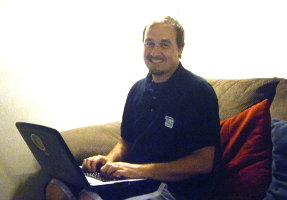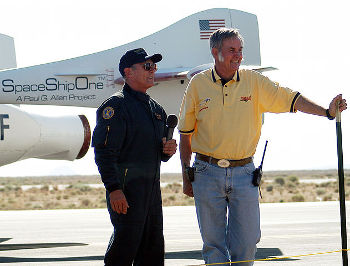Growing up in a rural farm and ranch environment, life was a bit different for us kids. Attending school outside the rural lifestyle was nothing if not uncomfortable. Often times, it was close to humiliating. We wore Levi 501s before it was cool to wear Levi 501s. They were considered “farmer pants” or “idiot jeans.” That reference was a jab at those who needed to button their pants because zippers were too complex to figure out. When we were old enough, we would drive our old pickup trucks to school. Everyone else was driving sleek or stylish cars. More than one farmer’s kid was suspended for dental displacement to someone who decided to make fun of their vehicle or choice of attire.

Ken Starks is the founder of the Helios Project and Reglue, which for 20 years provided refurbished older computers running Linux to disadvantaged school kids, as well as providing digital help for senior citizens, in the Austin, Texas area. He was a columnist for FOSS Force from 2013-2016, and remains part of our family. Follow him on Twitter: @Reglue



 And while using Linux may well change your life, I may have ever-so-slightly exaggerated the amount and impact of that change. Maybe just a little bit. Maybe.
And while using Linux may well change your life, I may have ever-so-slightly exaggerated the amount and impact of that change. Maybe just a little bit. Maybe.
 Claude and Jane are good folks. Both in their mid 70s. They live on their combined retirement funds and spend their time keeping busy with kids, grandkids, and from what I hear, a great-grandchild in a matter of months. They come over for coffee or tea at times, and we always see them at community center events. They are not well off by any standard, but they do okay…until last Saturday.
Claude and Jane are good folks. Both in their mid 70s. They live on their combined retirement funds and spend their time keeping busy with kids, grandkids, and from what I hear, a great-grandchild in a matter of months. They come over for coffee or tea at times, and we always see them at community center events. They are not well off by any standard, but they do okay…until last Saturday.
 What drives a person to do this? That whole “making my computer do what I want it to do” thing; how does a person even get their head around that in the first place? What was the specific moment in time when a person says, “I want to write software to make my computer do what I want it to do”?
What drives a person to do this? That whole “making my computer do what I want it to do” thing; how does a person even get their head around that in the first place? What was the specific moment in time when a person says, “I want to write software to make my computer do what I want it to do”?
 None of them even approach usability for the everyday computer user. None. And you would think that of all these choices, one of them has to work…or provides documentation reasonable enough for everyone. You would think.
None of them even approach usability for the everyday computer user. None. And you would think that of all these choices, one of them has to work…or provides documentation reasonable enough for everyone. You would think.
 And then, there I was, standing in my pajamas at 10:30 p.m., staring at the screen of our first color television set. My mom made us stay up late to watch “the most important event in history,” according to her. Neil Armstrong was about to set the first human footprint on the moon. Although later I thought the real important event was David Scott taking the coolest dune buggy ride ever during Apollo 15. Of lesser impact to most might be the Kent State massacre, Woodstock and the death of John Lennon.
And then, there I was, standing in my pajamas at 10:30 p.m., staring at the screen of our first color television set. My mom made us stay up late to watch “the most important event in history,” according to her. Neil Armstrong was about to set the first human footprint on the moon. Although later I thought the real important event was David Scott taking the coolest dune buggy ride ever during Apollo 15. Of lesser impact to most might be the Kent State massacre, Woodstock and the death of John Lennon.


 The only sad part of the story, at least so far, is that the United States has stubbornly dug in her heels. She has chosen to pay homage to the Microsofts and the Apples in our nation. We remain as one of the only nations in the world that openly shuns FOSS in the enterprise. We not only shun it, we work directly against it in the halls of our Senate. That’s due to one simple thing.
The only sad part of the story, at least so far, is that the United States has stubbornly dug in her heels. She has chosen to pay homage to the Microsofts and the Apples in our nation. We remain as one of the only nations in the world that openly shuns FOSS in the enterprise. We not only shun it, we work directly against it in the halls of our Senate. That’s due to one simple thing.

 I’ve spent a good deal of time, as well, kicking this around with my partner-in-ink Larry Cafiero. And some of the things I’ve taken away were not gotten face-to-face: Folks like Steven Vaughan-Nichols and Matt Hartley have discussed it through their preferred media in one way or another.
I’ve spent a good deal of time, as well, kicking this around with my partner-in-ink Larry Cafiero. And some of the things I’ve taken away were not gotten face-to-face: Folks like Steven Vaughan-Nichols and Matt Hartley have discussed it through their preferred media in one way or another.